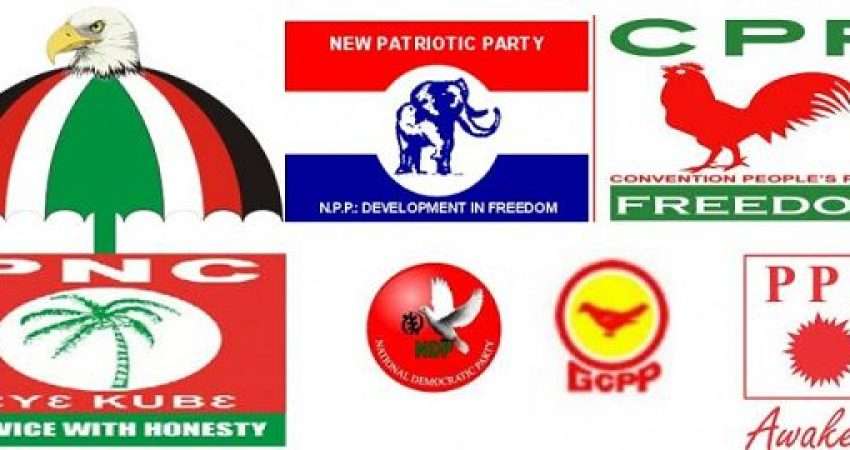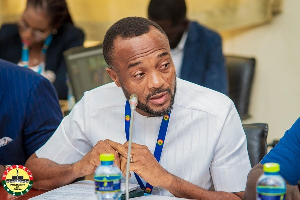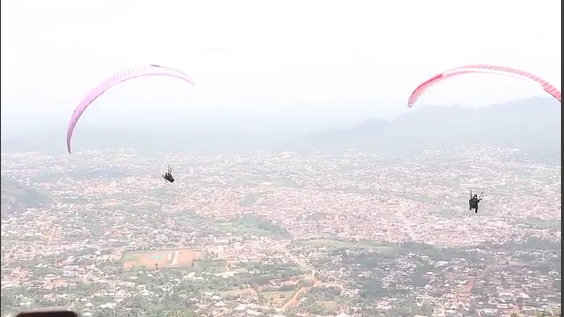Center of Democratic Development (CDD) Fellow and Governance Analyst, Dr. John Osae Kwapong, has opined that state funding for political parties during elections is the practical way to ensure a leveled playing field for parties during campaigns.
He indicated that if done well, state funding will ensure that an equitable amount of resources is given to all political parties based on their sizes and need. He indicated that while the constitution allows the state to give non-financial assistance to candidates such as equal access to state media, it does not make provision for financial assistance for political parties.
“What has been in contention now is whether the state should step in with financial support. Interestingly, when you look at the trajectory, sometimes when our parties are in opposition they tend to like the state financing political parties but when they are in power there is some kind of hesitation”.
Dr. John Osae Kwapong
Dr. Osae Kwapong further indicated that the challenge with implementing such a policy is the public’s unwillingness to accept the policy. He noted that a survey done by CDD in 2005 indicated that 50% of Ghanaians were in favor of state financing political parties, however recent Afrobarometer in 2022 shows that only about 20% supported the idea.
“The general sentiment is that, let the parties raise their own money. It will be a very difficult proposition now, given the climate in which we are in terms of public appetite, to get the public to support such a national policy”, Dr. Kwapong said.
The Deputy National General Secretary of the NPP, Haruna Mohammed stated that the NPP, as a conservative party, is not opposed to a policy that allows state funding for political parties.
He argued that the Political Parties Act (Act 574), 2000, which restricts political parties from engaging in any business to support their operations and the absence of state funding puts financial burdens on political parties.
He indicated that introducing government funding for political parties will reduce the burden of self-funding by political parties, arguing that the narrative that political parties are subservient to their major sponsors is false.
He noted that the political parties will welcome the initiative if the general public is in favor of the idea that the state should fund political parties while emphasizing that such a policy will give every political party a leveled playing field during elections.
NDC’s Partial Agreement
The Deputy General Secretary of the NDC, Mustapha Gbande, agreeing with the NPP Deputy General Secretary indicated that political parties derive their revenue from donations, subscriptions, and dues because political parties are not allowed to engage in businesses.
However, Mustapha Gbande noted that the NDC is not keen on state funding for political parties and their activities during elections.
He argued that the state should instead take an interest in analyzing the monetization of political activities by individuals to ensure discrepancies are not permitted to permeate the political circle.
He opined that running a political party is different from the behaviors of actors in politics, clarifying that a flagbearer’s or parliamentary candidate’s campaign is not determined by what a party does but is dependent on the candidate’s ability to afford the campaign.
Mr. Mustapha Gbande indicated that if the government is able to properly monitor the activities of individuals and control the behaviors of candidates, the government will be able to demand some accountability from political actors.
“The question is, the person who is a public service officer, how does that person’s expenditure reflect the reality of financial misappropriation? If I am an individual who is not holding a public office, how should I utilize my money? That should be the discussion we should be having. If we are able to control these levels, then we will be fine”.
Mr. Mustapha Gbande
He further noted that the NDC will welcome the state’s initiative that seeks to fund political parties, however, it will not pressure the state to implement such a policy.
Moreover, the General Secretary of the Progressive People’s Party (PPP), Remy Paa Kow Edmundson indicated state funding for political parties is a good idea, clarifying that the presence of smaller political parties in elections in the country is gradually diminishing.
He argued that the inability of small political parties to fund their campaign leaves the country at the risk of having a two-party system which is bad for the country’s democracy.
He asserted that small parties like the PPP have made essential contributions to major political issues hence they must not be left to perish due to financing.
Conclusively, the PPP General Secretary indicated that the public’s objection to state financing political parties is due to the opulence displayed by the two major political parties, the NDC and the NPP, during their primaries and General Elections.
READ ALSO: Francis Scott Key Bridge Collapse: Ship’s Data Recorder Retrieved





















